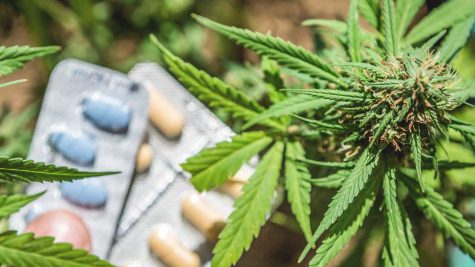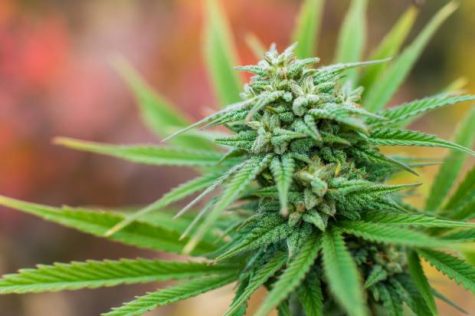Number of suicides committed using a firearm plummeted after California legalized medicinal pot
“If [cannabis] alleviates the acute stress associated with these disorders, we expect suicide risk to decrease following legalization of medical [cannabis],” say researchers from the University of California Irvine.
Based on the details of a new paper published in the Archives of Suicide Research, gun-related suicides have dropped throughout California since cannabis was legalized for medical purposes. Voters approved legislation to legalize medical cannabis in California under Proposition 215 in 1996.
“Findings reveal that rates of total suicide and gun suicide dropped significantly in the aftermath of Proposition 215,” say researchers from the University of California Irvine.
A team from the university discovered that, on a national scale, the number of suicides committed using a firearm rose 24 percent between the years 1999 and 2014. It was during this time period that the majority of America’s medical cannabis-friendly states first started enacting legislation.
“The systematic evidence connecting this trend to the availability of medical [cannabis] is ambiguous, however,” wrote the researchers, who focused on the rate of gun-related suicides, non-gun-related suicides and overall suicides from 1970-2004.
To ensure the results of their study were as accurate as possible, the university’s team of researchers analyzed statistics that they pulled from 41 states in which cannabis was not legalized during the same timeframe. A major reduction in suicide was noticeable in the years after legalization.
“In particular, for all suicides, our results demonstrate that California’s 1996 intervention led to an average reduction of 398.9 suicides per year and a cumulative reduction of approximately 3,191 suicides during 1997-2004,” reads the study, which goes on to say that, “legalization led to a reduction in gun suicides of 208 per year on average and a cumulative reduction of approximately 1,668 fewer gun suicides during 1997-2004.”
 So, why did the researchers notice such drastic reductions in the number of gun-related suicides throughout California after the plant was legalized for medical purposes? Could the passing of Proposition 215 have deterred depressed individuals from ending their lives?
So, why did the researchers notice such drastic reductions in the number of gun-related suicides throughout California after the plant was legalized for medical purposes? Could the passing of Proposition 215 have deterred depressed individuals from ending their lives?
Since weed is commonly being used as a treatment for depression, anxiety, and many other mental health conditions, it is possible that legalization might have positively impacted the happiness of Californians.
“If [cannabis] alleviates the acute stress associated with these disorders, we expect suicide risk to decrease following legalization of medical [cannabis],” the authors wrote. “The evidence for this is mixed, however.”
Another theory is that individuals who suffer from alcohol and substance abuse may have started substituting their alcoholic drinks for cannabis-based medications following legalization.
“If [cannabis] and alcohol use are combined, one might expect no change in suicide risk or even an increase in suicide following legalization. If [cannabis] replaces alcohol, on the other hand, one might expect a decrease in suicide risk following legalization,” say the researchers.
The researchers also touched upon gun accessibility issues faced by medical cannabis patients in California. Deeper analysis of the hypothesis that was drawn up by the university’s team “may reveal insight into why we do not find the expected reduction in non-gun suicides following legalization,” concluded the team.











